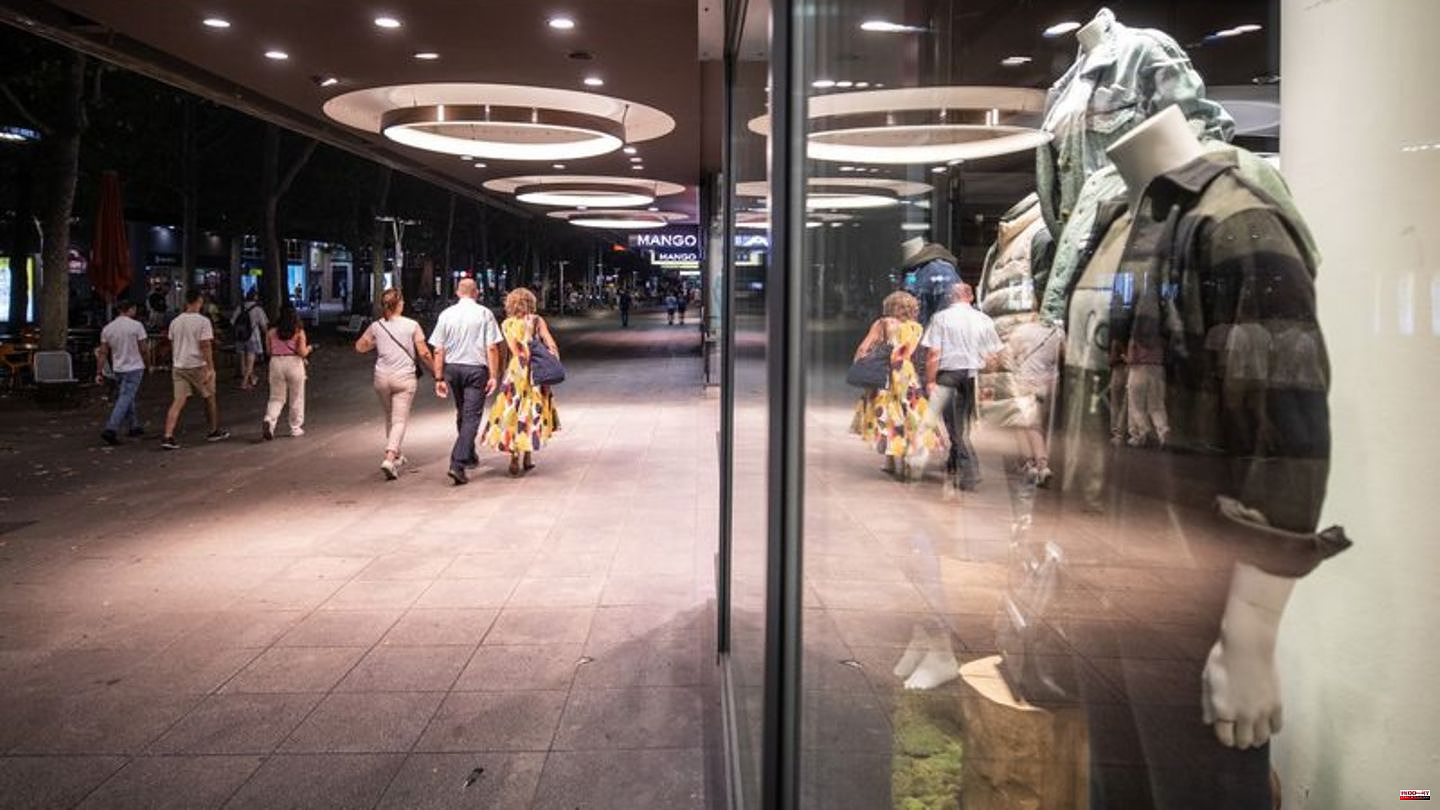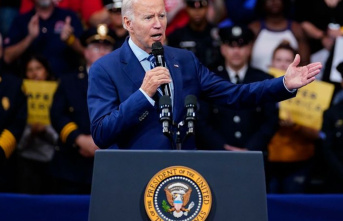Shopping works best in a feel-good atmosphere. The German retail trade therefore spends a lot of money every year for pleasant temperatures, good lighting and convenience in supermarkets and department stores. But in view of skyrocketing energy costs and the impending shortage of gas, the industry must now step on the brakes and save. The challenge here: the customer should not notice anything.
The fact is, energy is a big cost in retail. According to the company, the Rewe supermarkets alone consume as much electricity as 750,000 households - around half for cooling goods, another quarter for lighting. The average energy costs for a 1000 square meter supermarket have already increased from 80,000 euros a year to 140,000 euros due to the energy price increases, said Rewe boss Lionel Souque on Wednesday evening at the Wirtschaftspublizistische Vereinigung in Düsseldorf. All other large retail chains are likely to have to contend with similar cost explosions.
That the federal government, in view of the impending gas shortage, has passed an ordinance on short-term measures to save energy, which stipulates, among other things, that neon signs and billboards must be switched off at 10 p.m. on Thursday and that shop doors to heated retail premises may no longer remain open permanently , therefore certainly meets with approval in retail.
Closed doors, fewer customers?
But that doesn't mean that the whole thing doesn't cause problems in individual cases. "Closed doors can of course make a major contribution to saving energy. At the same time, however, fewer customers come into the shop," says Stefan Genth, general manager of the German Retail Association (HDE), describing the dilemma. Posters with the slogan "Close the door, shop open" should help, which should be seen on many entrance doors in the future.
But even beyond the requirements of the Federal Government's Energy Saving Ordinance, retail is in the process of making many adjustments to save energy. Germany's largest furniture retailer Ikea, for example, is also targeting escalators. "Depending on the technical conditions, we also control the escalators in our furniture stores according to frequency, so that they only use energy when needed," said the furniture giant. To be on the safe side, he added: "However, there are no plans to generally stop the operation of the escalators." Finally, the accessibility of the sales areas is also important.
The textile chain C
Hornbach wants to heat less
The Hornbach hardware store chain set up an interdisciplinary crisis management team, which developed a phased plan. This includes, for example, lowering the desired room temperatures within certain areas of the hardware store. "For example, there are plans to bundle temperature-sensitive goods such as indoor plants, animal feed or filler in more heated zones or to protect them with covers," the company reported.
Aldi Nord is examining when and where certain lighting can be turned off in and around the stores and in the logistics centers without endangering people's safety. "We also have an eye on the targeted reduction or shutdown of heating systems," said the discounter.
The drugstore chain Rossmann emphasized that it is not only forgoing the lighting of the advertising systems at night. "We have now optimized this and no longer illuminate some of the lettering during the day."
On the other hand, retailers are currently still reluctant to take some other measures. Rewe boss Souque said that shortening the opening hours had not yet been considered. In principle, the goal of the Rewe Group is "to make the greatest possible contribution to the savings required nationwide without creating restrictions for our customers," emphasized the company. Rewe probably shares this goal with most other retailers. Rossmann also promised that the cost-cutting measures would “barely be felt” by customers.








